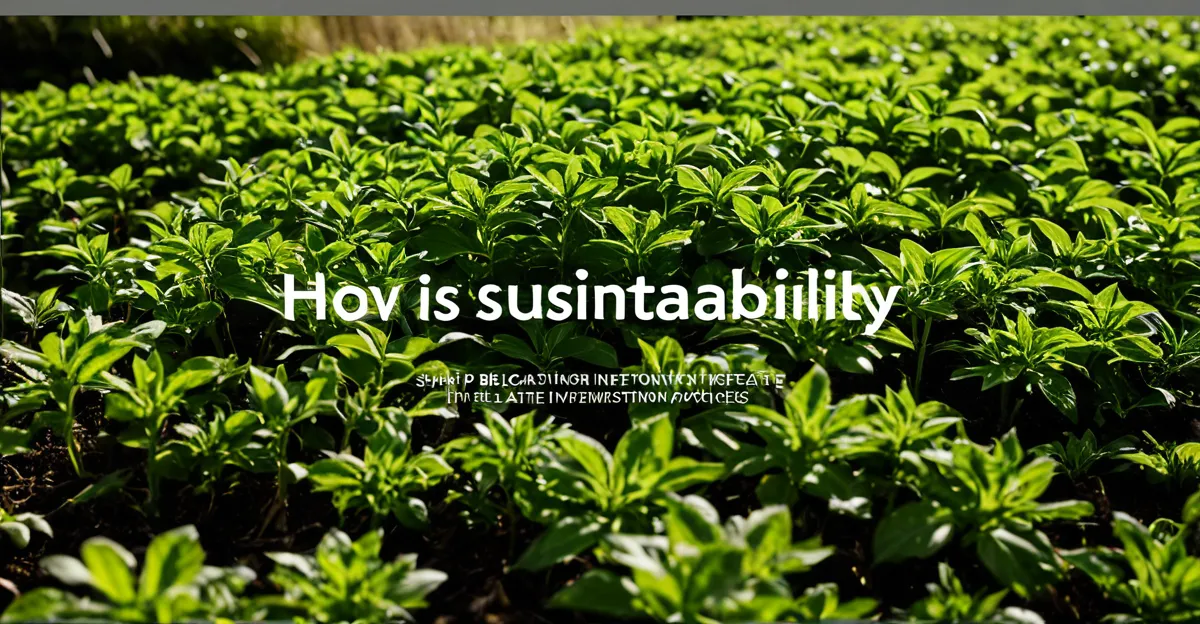The growing importance of sustainability in UK real estate
Sustainability is rapidly becoming a crucial factor in UK real estate investment strategies. Environmental concerns now significantly influence where and how investors allocate capital. This shift reflects a growing awareness that long-term sustainable value is essential—not just immediate financial returns. Investors understand that properties with strong sustainability credentials can reduce operating costs, attract quality tenants, and maintain value despite tightening environmental regulations.
The mindset in the industry is decisively moving towards embedding sustainability into investment frameworks. This trend is driven by the recognition that environmental factors such as energy efficiency, carbon footprint, and resource management contribute directly to a property’s appeal and resilience. Furthermore, sustainable investments align with broader global goals, making them attractive to responsible investors and pension funds.
Also to see : What Future Trends Are Expected in the UK Real Estate Finance Sector?
UK real estate professionals increasingly incorporate sustainability metrics in their evaluations to align with emerging market demands. This approach supports the development of properties that meet stricter environmental standards, provide healthier spaces, and ensure compliance with evolving legislation, cementing sustainability as a foundation for future-proofed investment strategies.
Regulatory and policy drivers for sustainability
Environmental regulations and UK property law play a pivotal role in shaping sustainability within the UK real estate market. The government’s commitment to net-zero carbon emissions by 2050 mandates strict compliance with environmental regulations, influencing investment decisions profoundly. Investors increasingly must consider how these policies affect property performance and long-term viability.
This might interest you : What are the potential risks of real estate crowdfunding in the UK?
Key legislation, such as the Minimum Energy Efficiency Standards (MEES), requires properties to meet specific energy performance criteria, limiting transactions for non-compliant buildings. Such laws push the market toward sustainable real estate policy adoption, encouraging upgrades in energy efficiency and reduced carbon footprints.
The impact of these regulations goes beyond compliance; they actively encourage the integration of sustainability principles into investment strategies. This drive not only safeguards properties from potential regulatory penalties but also enhances asset value and appeal to environmentally conscious tenants and investors. The regulatory environment thus acts as both a catalyst and framework for embedding sustainability in UK property investments, providing certainty and direction amidst evolving environmental priorities.
ESG criteria shaping investor decisions
Environmental, social, and governance (ESG) factors are increasingly central to real estate investment criteria in the UK. Investors prioritise responsible investing by integrating ESG into decision-making processes, aiming to balance financial returns with sustainable impact. This shift reflects growing recognition that ESG adherence enhances long-term asset performance and reduces exposure to regulatory and reputational risks.
Why are ESG criteria now vital for UK real estate investors? Strong ESG performance aligns with lower operating costs, improved tenant retention, and access to capital from ethical funds. Studies consistently link ESG-compliant properties with higher valuation and rental premiums due to increased demand from conscientious investors and tenants. Therefore, ESG is not merely ethical—it drives superior financial outcomes.
Investment strategies incorporating ESG focus on energy efficiency, social responsibility, and transparent governance. This holistic approach ensures properties meet modern sustainability expectations, future-proofing portfolios. For example, real estate investment managers are rating ESG risks as critical factors in asset selection, pushing the market towards greener, safer, and more socially inclusive developments.
In sum, ESG criteria profoundly influence UK real estate investment patterns, fostering a marketplace where responsible investing is synonymous with economic resilience and sustainable growth.
Green building standards and certifications
Sustainability in UK real estate increasingly relies on recognized green building standards such as BREEAM (Building Research Establishment Environmental Assessment Method) and LEED (Leadership in Energy and Environmental Design). These certifications assess buildings on energy efficiency, water usage, waste management, and overall environmental impact. Their adoption signals a property’s commitment to sustainable construction and environmental responsibility.
What benefits do BREEAM and LEED certification provide? Primarily, they ensure that the construction and operation of buildings meet stringent sustainability criteria, reducing carbon footprint and operational costs. Certified buildings often attract higher-quality tenants and investors who value energy savings and eco-friendly features. Studies reveal that these green buildings tend to achieve higher rental yields and property values, making sustainable certification a compelling factor in investment strategies.
The market advantage of green buildings stems from transparency and accountability offered by certifications, giving investors confidence in the asset’s environmental performance. Moreover, compliance with these standards helps preempt increasingly strict environmental regulations and positions properties competitively within the growing UK real estate sustainability focus. The integration of BREEAM and LEED into development projects is no longer optional but a strategic essential for future-proofing investments.
Tenant and investor preferences influencing the market
Tenant demand and investor preferences are pivotal forces reshaping the UK real estate landscape. Increasingly, tenants seek energy-efficient and eco-friendly spaces that reduce utility costs and promote wellbeing. Modern commercial tenants prioritize sustainable property features such as improved air quality, natural lighting, and waste reduction measures. This shift reflects growing environmental awareness and corporate responsibility commitments.
How do investor preferences align with these trends? Investors are progressively favoring properties that demonstrate strong sustainability credentials to meet the expectations of institutional funds and corporate occupiers. Sustainable property features often translate into enhanced marketability, higher occupancy rates, and improved tenant retention. For instance, buildings with renewable energy systems or smart energy management are especially attractive.
The influence of these preferences extends beyond aesthetics—it drives demand for buildings that achieve measurable environmental performance. As a result, UK real estate investment strategies incorporate tenant and investor insights to prioritize sustainable developments. This alignment strengthens long-term asset value and supports the broader transition towards a low-carbon property market. In sum, evolving tenant demand and investor preferences serve as critical catalysts for embedding sustainability into the UK real estate sector.
Risk management and future-proofing investments
Effective risk management in UK real estate now requires addressing climate risk as a core component of investment strategies. Climate change poses significant threats to property portfolios through increased flooding, extreme weather, and regulatory shifts. Investors must identify these climate-related risks early to safeguard asset resilience and preserve long-term value.
How can portfolios be future-proofed against evolving climate risks? First, integrating resilience measures—such as flood defenses, sustainable drainage systems, and energy-efficient upgrades—can mitigate physical vulnerabilities. Second, adopting adaptability strategies enables assets to remain compliant amid tightening environmental regulations and shifting tenant demands.
Focusing on asset resilience involves stress-testing properties against future climate scenarios to understand potential impacts. This proactive approach helps investors prioritise upgrades and divest from higher-risk assets, reducing exposure to financial losses and reputational damage.
In essence, prioritising climate risk and resilience enhances sustainability and aligns with responsible investing best practices. It transforms risk into opportunity by supporting the transition to a low-carbon, adaptable property market, ensuring sustained economic returns while addressing urgent environmental challenges.
Emerging trends and case studies in UK sustainable real estate
Emerging market trends in the UK property sector highlight innovation and increasing commitment to sustainability. Notable projects demonstrate how developers integrate advanced energy-efficient technologies, circular economy principles, and smart building management systems to reduce environmental impact. These pioneering developments set new benchmarks for sustainability, influencing wider adoption in the sector.
How do these trends shape future investment strategies? Evidence from leading case studies shows that embedding sustainability from the design phase yields both ecological and financial benefits. For example, projects that incorporate renewable energy sources, water recycling, and high-performance insulation report lower operating costs and enhanced tenant appeal. This aligns with investor demand for assets that combine environmental responsibility with economic resilience.
UK property sector innovation also explores modular construction and adaptive reuse, reducing waste and resource consumption. Developers increasingly prioritise transparency in sustainability reporting, supported by technologies such as digital twins to monitor performance. Collectively, these trends encourage real estate investment strategies to evolve towards long-term value creation grounded in sustainable principles.
By learning from successful case studies, investors and developers can confidently adopt strategies that future-proof assets, balancing environmental goals with robust financial returns in the dynamic UK real estate market.




